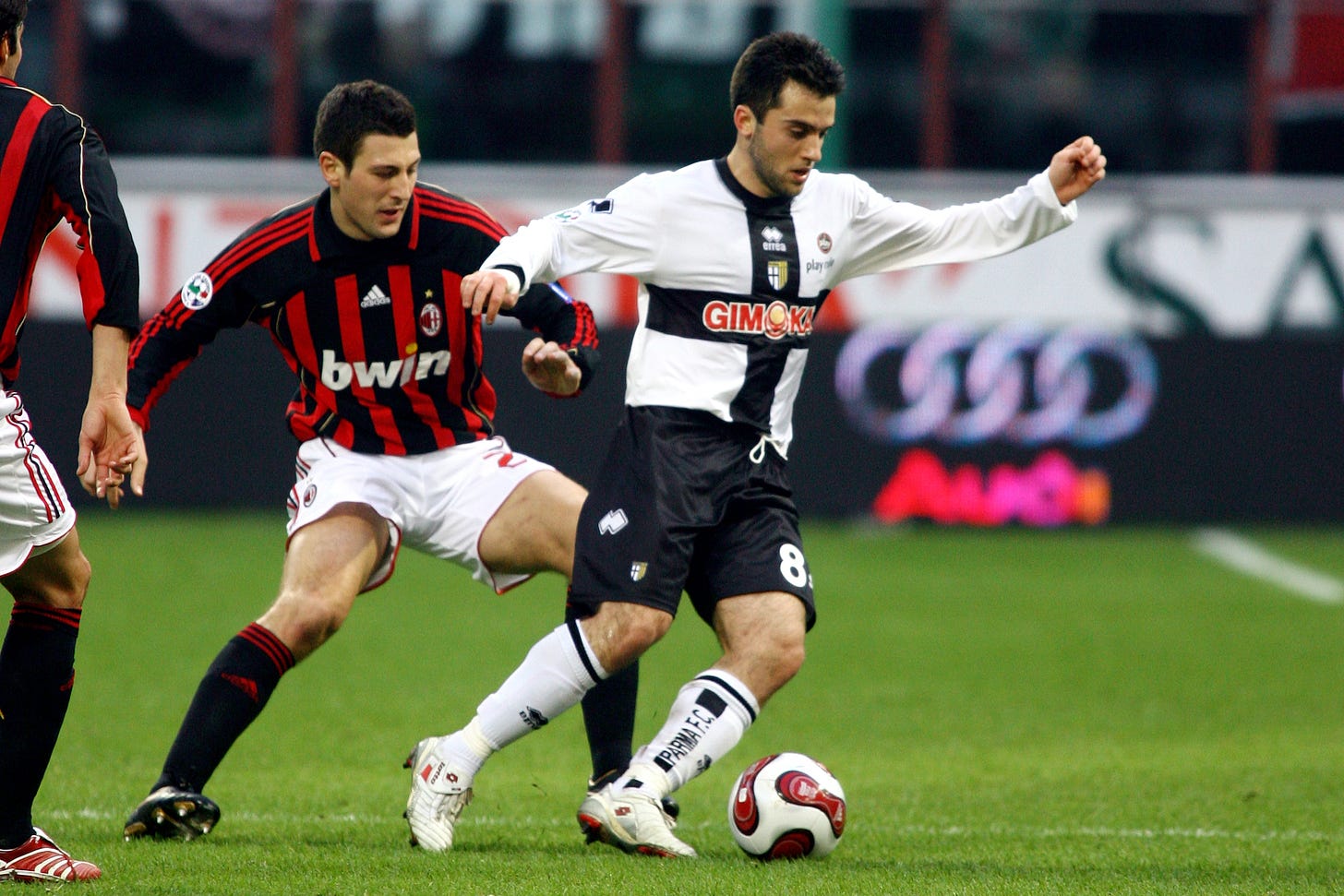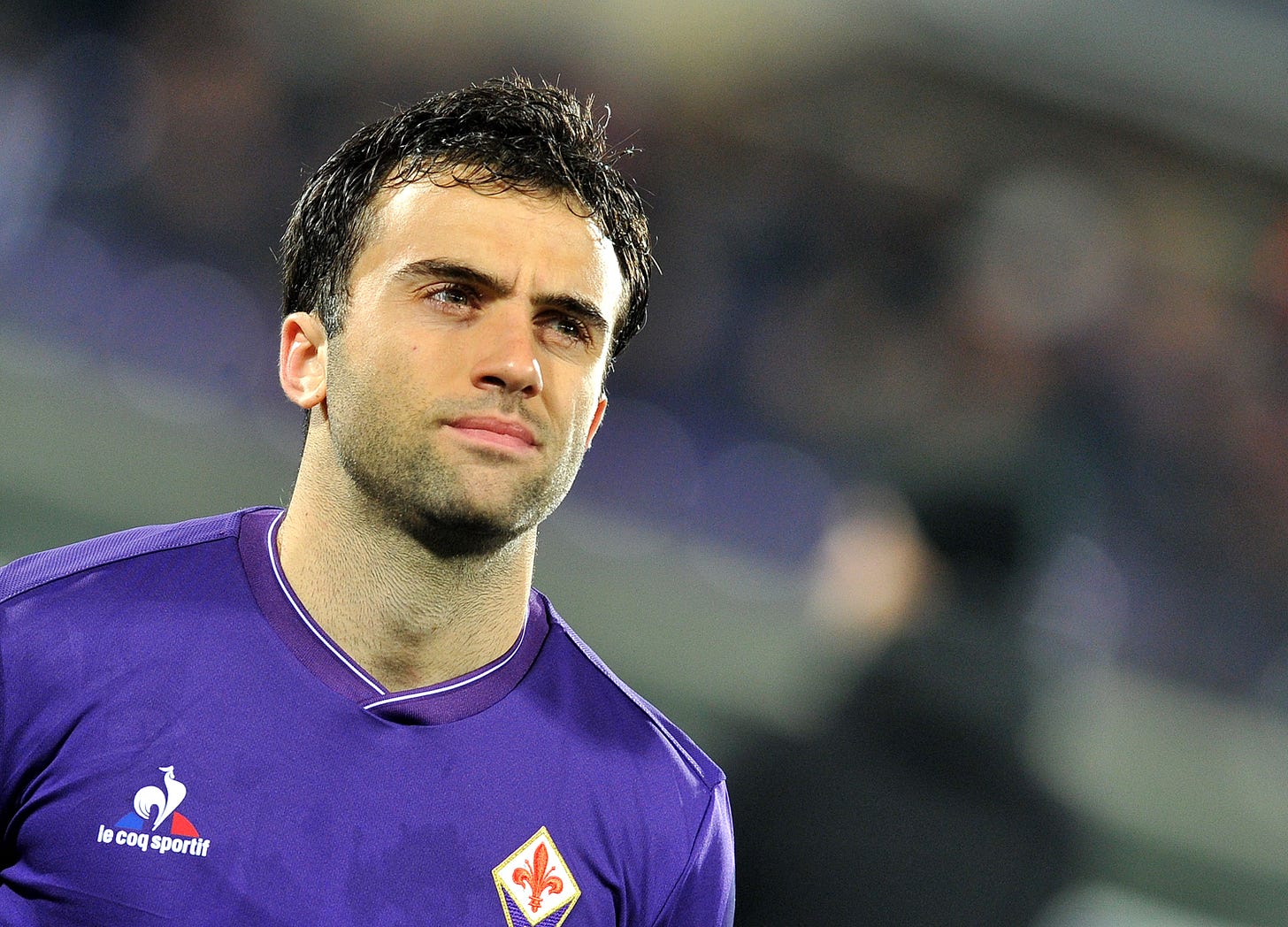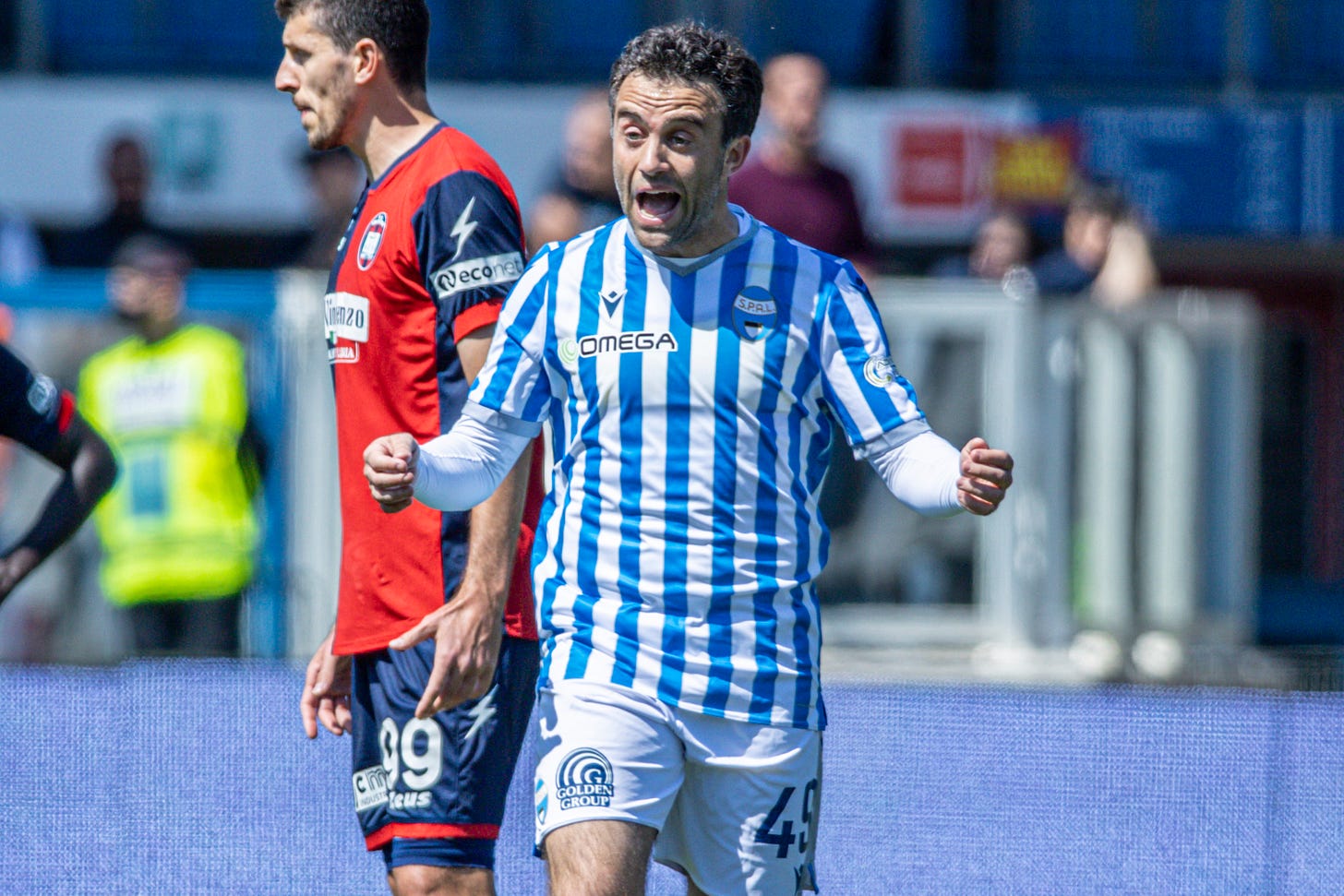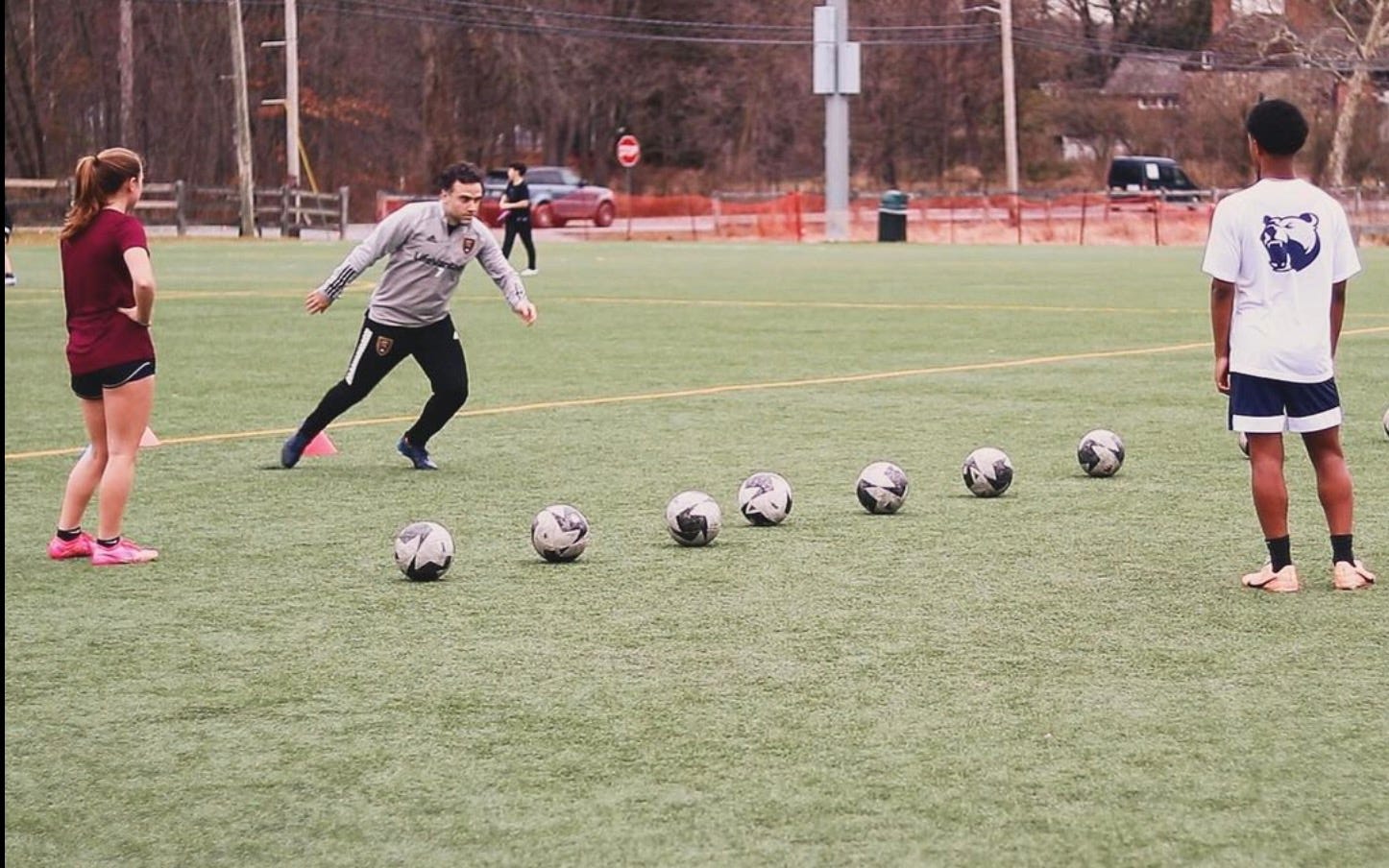⚽️🇮🇹 Calcio Weekly interview: Giuseppe Rossi
The New Jersey-born former Parma, Fiorentina and Genoa striker discusses his illustrious career in Serie A, his thoughts on the 2024-25 season, and much more.
Hi Giuseppe, who do you think will finish in the top four this season?
I have a feeling that Juventus this year are going to do well. I think they needed a change at the coaching position, just a different type of energy, and I like the way that Thiago Motta is establishing himself with the team. And I trust Thiago - I played with him. He has a great football brain. He knows what he's talking about.
Inter are always going to be up there too, and I’d also consider Napoli. Antonio Conte usually doesn't miss, right? So if he does miss the top four, that'll be the first in a long time.
And you can never discredit Roma, I love Daniele De Rossi. He's doing great things, and I think he's just added a new type of energy around Roma.
And, of course, Milan is one of the most decorated teams in the world. Now with Paulo Fonseca, are they able to find that continuity that they need to continue to stay at the top? It'll definitely be fun with so many exciting changes in the managerial positions.
Are there any underdog teams you think might do well this season?
I always have great hopes for Fiorentina. I feel like every single year they're able to do something good. They always start off great, but then towards the end they go deep into the European tournaments, so maybe they steer away from the Serie A standings. I wish I could have won a trophy with them when I played there - in Europe especially.
You played in a lot of different countries and different leagues. What made Serie A special? How does playing in Italy compare to other leagues?
I'm a striker, so I know Serie A is one of the toughest for us strikers to play in, just because of how tactically sound every team is. Italian coaches live and breathe tactics, especially on the defensive side. I grew up in the youth system of Parma, and I knew from day one, when I was 12 years old, all the tactical intricacies of how we press and our positioning in certain moments of the game. That's taught at such a young age that Italians are known for their tactical play. So it was always tough in Serie A to break down certain defenses. But having that challenge within the game, I loved it. From all my playing days, it was definitely the toughest out of Spain and England.
Is there a favorite moment from playing in Italy that has stayed with you?
My first goal with Parma was special, because I finally announced myself to the soccer world, and everybody started laying their eyes on me after that first goal against Torino. That was very special for me. It's a beautiful goal as well.
And then obviously the Fiorentina game against Juventus - a historic game, losing two zero against our arch rivals, then winning it four to two at the end, and me scoring a hat-trick. October 12th, 2013 - I'll never forget it, because all the fans will not make me forget it! That's a game that’s still talked about today, and what a day it was for us.
Do you have a favorite stadium you played in in Italy?
I think the San Siro is special. The first time I went there, I was playing for Manchester United, I was only 17, and Sir Alex Ferguson said: “I know you’re Italian, this will be something beautiful for you.” And I'm like, ‘Hell yeah, of course!’ Come game day, I go to the stands because there just wasn't enough space on the bench. They played ‘Eye of the Tiger’, the Rocky song, when the players came out, and the first guy came bursting out of the tunnel at 100 miles an hour! I was like, are you kidding me? That level of energy is what true soccer is about. So I'll never forget my first time at the San Siro.
If you had to make an argument to an American soccer fan to start watching Serie A, what would your argument be? Why should they watch?
The league has so much history behind it, and throughout time, all the best players in the world have played in Italy. The love and passion that the fans have for the game, that they bring every single Sunday, is second to none. The quality has gotten better, and it’s more attack-minded. It's a quality league to watch, and it's full of emotions, because that's how Italians play, right? They play with so much emotion for 90 minutes, because they feed off of the fans.
If you could tell an American who's never been to a Serie A match before, the one fixture that they should visit when they go to Italy for the next time, what would that be?
I'll give you three fixtures. You have to go see Milan play Inter - that's a true spectacle. Roma vs Napoli is also a crazy, crazy game between two of the best fan bases you'll find. And of course, the Derby della Capitale between Roma and Lazio is essential. It's wild!
It feels like an exciting time for Serie A and European soccer in North America right now…
There's more exposure to the game now; it's more present in the American household. It's great to see, because when I was growing up, and I was trying to get a pick-up game going, I think I only got, like, one person to come - and it was my sister.
Do you have a favorite region in Italy?
I always visit Tuscany. I played for Fiorentina for three years, and it became my second home. So I bought a house there. My father and mother are from Abruzzo and Molise, respectively. I try to get down there as much as I can. The food down there is just amazing: there’s great lamb dishes, and different types of pasta they have down there. It's just amazing.
When you go back, is there a meal or dish you have to have?
For me, it's just a simple dish of pasta with tomato sauce and a little bit of basil on top. That's it. It's just different when it's made in Italy - the tomato sauce itself, the pasta is less heavy, you know, the basil, you can really smell its flavor, and the parmigiano is just so fresh. So it's just those small, simple, fresh ingredients. You put them all together, and you create a masterpiece.
Finally, could you tell us a bit about the Giuseppe Rossi Academy?
I started my academy after I retired last year. It's individual and group training, and it’s my way of giving back as much as I can. My thoughts on the youth system here in America are not really that positive: There's a lot of things that I see that I don't like, and I think the heart is not in the right place. So I'm trying to create an environment where the kids know that I'm doing it for them and giving them the best experience possible, and helping them understand what it takes to make it at a certain level.






